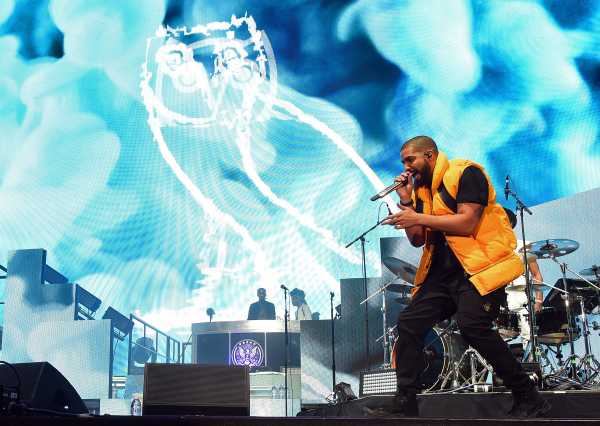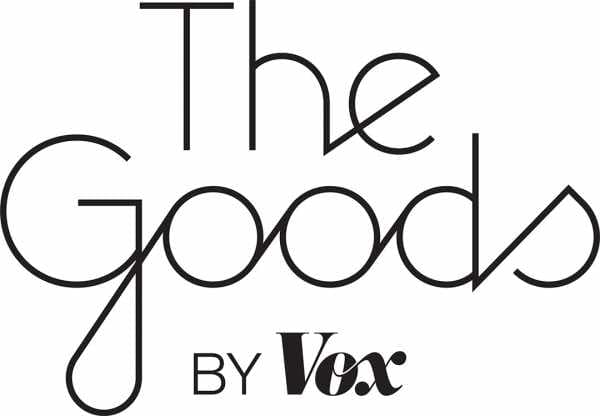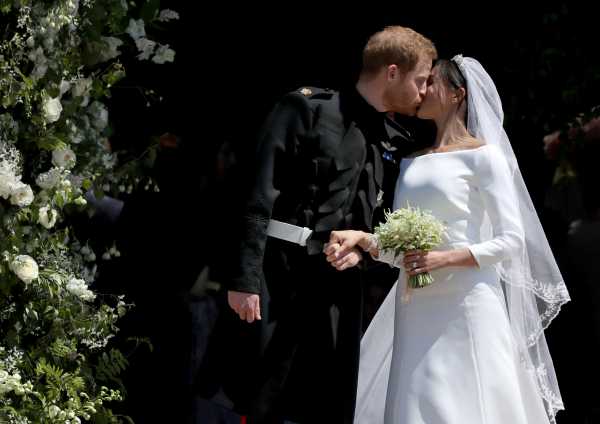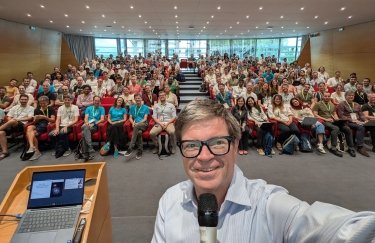

At a store in the mall nearest my apartment, there is a T-shirt for sale that reads “Kiki doesn’t love you,” paired with a frowning emoticon. I’ve thought a lot about how bizarre it is that a single lyric in a song on an album that contained 25 songs could become such a shared touchpoint as to be recognizable even in this strange, inverted version, sold in a discount clothing store, completely divorced of context.
What a strange moment in which a phrase can go so quickly from song to tweet to meme to physical object that expects you to understand a reference without even directly making the reference. It is not that this level of ubiquity for a pop culture object is bad, exactly, it is just … how did it happen?
To (partially) answer that, take a look at platforms’ end-of-the-year lists. All of the big players of the social web — YouTube, Instagram, Twitter, etc. — release some kind of data haul at the end of the year, typically accompanied by a video montage or infographic. I generally avoid them because they’re essentially advertising for products that I use for my job every single day, but this year I clicked on each and every one, hoping to find some evidence that something cool happened on the internet this year and I just missed it.
Unfortunately, the truth is that I didn’t miss much of anything, as everything that happened on every platform was just the same four to six things over and over again: “In My Feelings” and Fortnite. ASMR. A boy yodeling in Walmart.
There was a time when what was happening on YouTube would have looked nothing like what was happening in Google Search, or when what was happening on Pornhub would look nothing like what was happening on Instagram. (Remember when a year on YouTube could be summarized by a link to a song about llamas? Or the years before @dasharez0ne was giving interviews and tweeting at Wendy’s?) That time is over, and it’s because of advertising dollars — and Drake.
The end of the year is a time for glossy, ad-friendly versions of events
Google’s “Year in Search” video typically makes my eyes water against my will, like those Budweiser commercials about fancy horses. This year was no different even though I specifically instructed myself to be passive and uninvolved. “During a year of highs and lows, the Year in Search highlights all the ways people continued to search for ‘good,’” a Google News data editor wrote on the Google blog. “And this year, it was more than ever.”
Related
Nearly everything Meghan Markle has worn since her pregnancy announcement has sold out
People searched “how to be a good singer,” Google says, showing a clip of that kid yodeling in a Walmart. They searched “how to be a good dancer,” which is why there are clips of the “In My Feelings” challenge, and they also searched “How to be a good kisser,” which is why there is a clip of Meghan Markle kissing Prince Harry. Cardi B does a tongue trill in response to a search for “Good vibes.” (Please keep these in mind as you will see them later.)

This hype reel doesn’t have any explicit methodology behind it; what it really serves to do is remind us that most people are good and that Google Search is a good product. Right now, about 86 percent of the revenue for Google’s parent company Alphabet comes from advertising. The money is in search, which is one of the primary sources of traffic for this website, and is extremely lucrative for almost any other business you can name — meaning it’s also lucrative for Google to auction off search keywords to the highest bidder, or to sell sponsored preferred placement on its results pages.
Search is sort of the star of the show, and it behooves Google to remind users and would-be sponsored-placement buyers just how important and “good” it is. Search, it’s strongly implied, is an inextricable part of the human experience. (You didn’t even know how to kiss!)
More importantly, it also gives us a list of things that happened this year that apparently everyone cared about: “In My Feelings,” Meghan Markle, Cardi B, yodeling kid, World Cup.
Google-owned YouTube is the poster child for social internet sameness
YouTube’s “Rewind” video for 2018 is the most disliked video in the platform’s history (more than 13 million downvotes as of writing), beating out Justin Bieber’s “Baby” — which previously held the record with more than 10 million downvotes.
It starts with Will Smith doing something and a remix of Cardi B’s “I Like It.” It is more than eight minutes long, and its main plot concerns a gaggle of moderately famous YouTubers (I recognized maybe four of them) deciding what they should do … in the video that they are in.
Like Google’s, this video brings up the kid who yodeled in a Walmart. Like Twitter and Tumblr, they bring up the K-pop group BTS. Like Pornhub and Tumblr and Instagram, they bring up Fortnite and ASMR. Like everyone, they bring up the “In My Feelings” challenge, although there is also a talking tarantula involved in that part. A second remix of Cardi B’s “I Like It” plays, this time mashed up with Panic at the Disco’s “High Hopes.”
“Hey look, it’s the annual corporate circle jerk celebrating another year of the least creator-friendly site on the entire internet,” reads one of the thousands of comments.
Google-owned YouTube also runs on ads, and its arguably grotesque cults of personality — like the ones surrounding people like PewDiePie or Logan Paul — run on attention and affection. The commercialization of YouTube has resulted in a greater reliance on ad-friendly content like music videos and super-professional squeaky clean creators who will play ball with YouTube. Audiences for creators who don’t play nice have become paranoid and often vicious, rallying even tighter around these people that they feel are being stripped of their livelihoods and maybe leading some kind of counterculture rebellion.
At this particular moment in YouTube’s history, Vicky Osterwell writes for Real Life, “One horizon for YouTube is to follow Netflix and Amazon and move further in the direction of emulating the studios they ‘disrupted,’ producing and distributing a limited amount of content in the conventional way, now that they have secured a share of the attention market.”
Will YouTube go the Netflix and HBO route and chase George R.R. Martin? Or the Amazon route and chase every person it can think of who isn’t George R.R. Martin but is kind of George R.R. Martin? As I said, everything is the same. Soon it will be even more the same.
Instagram, Twitter, and Facebook have nothing much to add
“We’re heartened to see that sharing love and kindness is still a top priority for the Instagram community,” read the year-end blog post for a platform where almost the sole way to interact with a piece of content is by clicking a heart.
The pop culture phenomena most popular on Instagram this year were Fortnite, K-pop group BTS, the “In My Feelings” challenge, particularly Will Smith’s contribution. Also, ASMR, makeup, and slime. Instagram has been owned by Facebook since 2012, but its co-founders left the company abruptly in September, with most reporters extrapolating that they were unhappy about the way the platform was being morphed to accommodate monetization by selling more ads and integrating shopping features, and to direct users back to Facebook’s app. (Instagram is projected to bring Facebook $8 billion in ad revenue this year.)
Related
Facebook won’t fix itself
Facebook, perhaps reading the room for the first time ever, did not do much in the way of a year in review. It pulled a list of “top keywords by volume” and said the most-referenced topics of the year were dead celebrities, the World Cup, the Super Bowl, American and Brazilian elections, International Women’s Day, and the hypothetical 100th birthday of Nelson Mandela, who died in 2013. Also, obviously, Meghan Markle.
Twitter also held back this year, releasing only a 30-second animated clip that revealed just five data points. Twitter says 125 million hashtags were used every day, “But all in all, it really was the year for BTS, who were the most tweeted about account this year.” The most liked tweet was a video of BTS member J-Hope doing the “In My Feelings” challenge.
It’s everything you want a 33-second clip to be: dancing, cute boy, minimalist gravel-and-grey-hoodie aesthetic, and most importantly, extremely culturally digestible. There are hundreds of millions of people who understand this tweet, and understood its referents on every other social platform in 2018.
Dance challenges are perfect. But are they all there is now?
I loved the “In My Feelings” challenge, the way I love every dance challenge, unequivocally, for all time, there should be grants provided by the government to people who create dance challenges, and one should also take the place of the poet laureate. I also like Cardi B a lot, and am happy for the young men of BTS and for the yodeling kid of Walmart.
I’m far from the first to fall for the most accessible entertainment, and I’m far from the first to point out that the internet has gotten boring — coated over in sameness. It should be obvious that the larger these platforms get, and the more pressure they are under to sell ads, the flatter and less interesting their products will be, and the flatter our memories of the previous year will be. I’m complaining about the sameness of all these lists, yet can I name something important that isn’t on them?
It’s 2018 and the internet is just a handful of things, all worth a lot of money.
Sourse: vox.com





